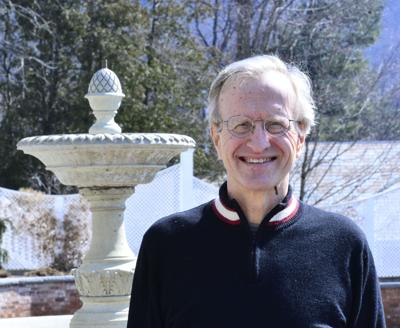The Mindful Minute: Political Parties and Jon Heydenreich’s Insights
Have you ever pondered why people pledge unwavering loyalty to a political party, often without fully evaluating the candidates and their agendas? This question delves into not just voting behavior but also human nature and psychology behind political affiliations.
In this article, we will explore Jon Heydenreich’s thoughts on political parties, the subconscious mechanics that govern our political choices, and how being mindful can lead to more informed and intentional voting decisions. We will break down the process into manageable sections for better understanding.

The Psychology Behind Political Loyalty
Cognitive Dissonance in Political Choices
When you align with a particular political party, it’s often not just a matter of policy but a matter of identity. Cognitive dissonance theory explains that once we make a commitment, our minds work hard to maintain consistency between our beliefs and actions. This creates a psychological comfort zone but can also prevent us from evaluating new information impartially.
Group Dynamics and Social Identity
Being part of a political party offers a sense of belonging and community. Social Identity Theory suggests that our self-concept is partly derived from the groups to which we belong. Therefore, questioning the policies or candidates of our chosen party can feel like questioning our own identity.
The Influence of Media and Pundits
The Role of Media in Shaping Perceptions
Media pundits hold significant sway over public opinion. They often provide simplified versions of complex issues, making it easier for people to adopt these opinions without further scrutiny. This is particularly true in today’s world, where news cycles are shorter, and sensationalism often overshadows nuanced discussions.
Echo Chambers and Confirmation Bias
Social media algorithms tend to show you content that aligns with your existing beliefs, contributing to echo chambers. This reinforces your opinions and makes you less likely to encounter differing viewpoints. Confirmation bias further exacerbates this, as we tend to seek out and accept information that confirms our pre-existing beliefs.

Jon Heydenreich’s Perspective
Encouraging Mindfulness in Political Decisions
Jon Heydenreich emphasizes the importance of mindfulness in making political decisions. Mindfulness involves staying present and focused, which can help you evaluate candidates and policies more objectively. By being mindful, you can break free from the automatic pilot of entrenched party loyalty and make decisions based on facts and records rather than rhetoric.
Emphasizing Truth and Reality
Heydenreich urges people to ‘live in reality.’ This means looking beyond the superficial and emotional appeals made by politicians and considering their actual track records and qualifications. It’s about making a conscious effort to seek out unbiased information and to think critically about what you find.
Steps to Becoming a Mindful Voter
Self-Reflection and Awareness
Start by reflecting on why you support your current political party. Is it because you genuinely agree with their policies, or is it because you have always supported them? Understanding your motivations can be the first step toward more mindful voting.
Seeking Unbiased Information
Make it a habit to consume news from multiple sources. Diversify your news consumption to include outlets with different political leanings. This will help you get a more balanced view of the issues and counteract the effects of echo chambers and confirmation bias.
Evaluate Candidates Objectively
Before voting, take the time to research the candidates. Look at their records, qualifications, and policy proposals. Compare them based on these criteria rather than party affiliation or media portrayal.
Engage in Constructive Discussions
Talk to people with different viewpoints. Engage in open and respectful discussions to understand why they support their chosen candidates or parties. This can provide you with new perspectives and help you make a more informed decision.
The Role of Education in Informed Voting
Civic Education and Critical Thinking
Civic education plays a crucial role in developing informed voters. Schools and universities should emphasize the importance of critical thinking and teach students how to assess political information independently. This foundation can help future generations make more mindful political choices.
Community Programs and Public Discussions
Community programs that focus on political education and public discussions can also make a significant impact. These programs can provide a platform for people to engage with different viewpoints, learn about the issues, and develop critical thinking skills.
The Impact of Mindful Voting
Better Representation and Accountability
When you vote mindfully, you contribute to the election of candidates who are genuinely qualified and committed to public service. This leads to better representation and more accountable governance, as elected officials know that their performance will be critically evaluated by informed voters.
Strengthening Democratic Processes
Mindful voting strengthens democratic processes by ensuring that elections are decided based on merit and factual information rather than partisan loyalty and emotional appeals. This fosters a healthier political environment where diverse opinions are valued and debated constructively.
Overcoming Challenges to Mindful Voting
Battling Misinformation
One of the biggest challenges to mindful voting is misinformation. The prevalence of fake news and misleading information can easily sway public opinion. To combat this, always verify the information from reputable sources before accepting it as true. Fact-checking websites can be valuable resources in this regard.
Dealing with Pressure and Bias
Both social and personal biases can affect your voting decisions. Family, friends, and social circles often exert pressure to conform to a particular political stance. Overcoming this requires courage and a commitment to independent thinking. Seek out safe spaces where you can discuss your thoughts and questions without fear of judgment or ostracism.
Managing Emotional Responses
Politics often elicit strong emotional responses. While it’s natural to feel passionate about issues that affect you and your community, it’s essential to balance emotion with reason. Practice mindfulness techniques like deep breathing and meditation to manage your emotions and approach political discussions with a calm and open mind.
Practical Tips for Implementing a Mindful Voting Practice
Create a Voting Checklist
A voting checklist can help ensure you evaluate all necessary aspects of a candidate or policy before making a decision. Your checklist might include items like qualifications, past performance, policy proposals, and debate performance.
Set Aside Time for Research
Dedicate specific times in your week to research political candidates and issues. This deliberate effort helps ensure that you’re not making rushed or uninformed decisions at the last minute.
Join Discussion Groups
Find or start discussion groups focused on political issues. These groups can provide a platform for mutual learning and can help you see issues from multiple perspectives. Ensure these groups encourage respectful and evidence-based discussions.
Practice Forgiveness and Understanding
Understand that everyone is on their own journey towards becoming more informed and mindful voters. It’s essential to practice forgiveness—both towards yourself if you make mistakes and towards others who may have different viewpoints. Constructive dialogue, rather than confrontation, can lead to greater understanding and progress.
Case Studies: Mindful Voting in Action
Case Study 1: The 2020 U.S. Presidential Election
In the 2020 U.S. Presidential Election, several voters made deliberate efforts to step outside their echo chambers. They attended town halls, read manifestos, and even interacted directly with campaign representatives to ask critical questions. Their stories reflect a broader trend of voters seeking to become more informed and less polarized.
Case Study 2: Local Elections in Vermont
Local elections in Vermont have seen a rise in voter education initiatives. Community groups have held workshops on how to critically evaluate political information and invited candidates to speak directly to the voters. These efforts have resulted in a more informed electorate and closer, more meaningful elections.
Conclusion: The Path Forward
Mindful voting doesn’t require you to abandon your political beliefs. Instead, it urges you to strengthen them through informed, critical evaluation. By adopting Heydenreich’s principles of mindfulness, truth, and reality, you can contribute to a more transparent, accountable, and democratic political process.
Remember, your vote is a powerful tool. Use it wisely, thoughtfully, and mindfully. The future of your community, state, and country depends on it.
By embracing mindful practices, you can transform not only your voting experience but also contribute to a healthier democratic process. Make the effort to step back, evaluate, and choose with intention. Your mindful vote has the power to create meaningful change.




